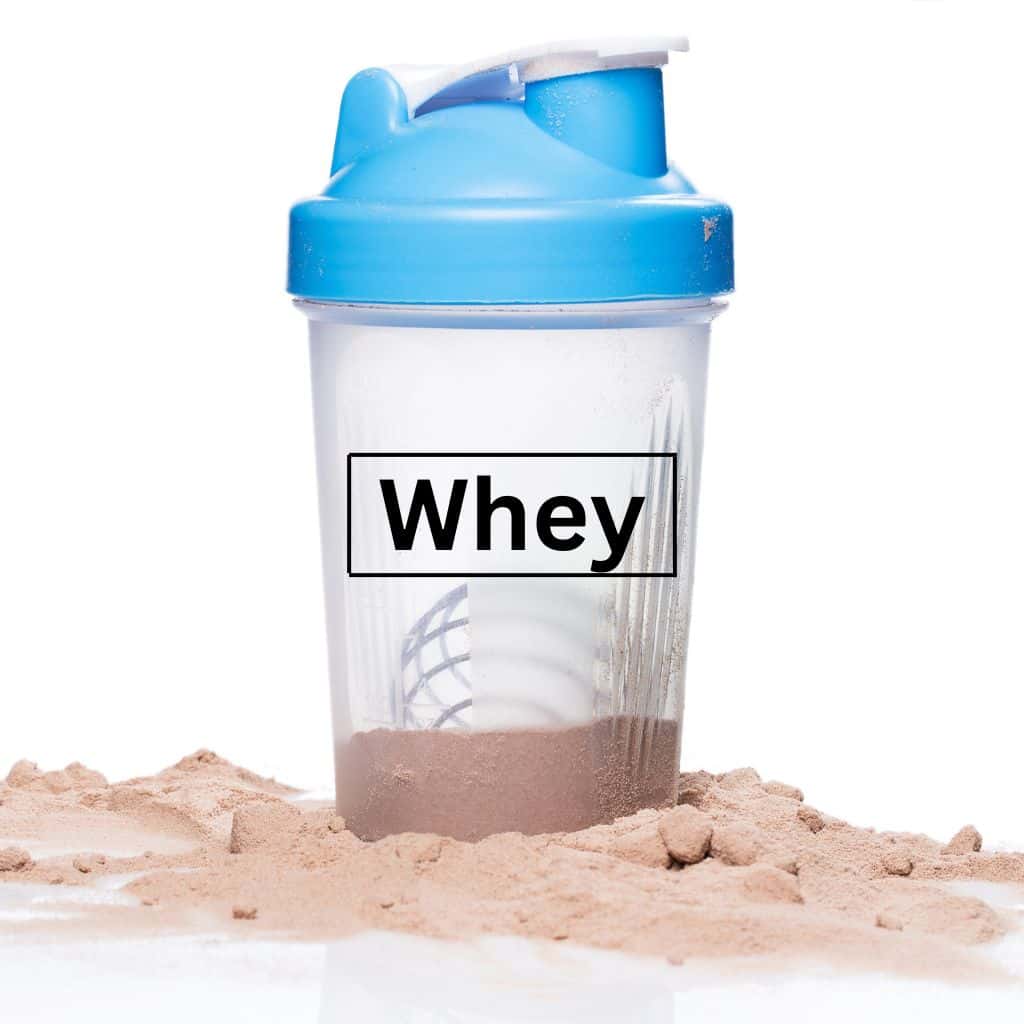Whey Protein.. It sounded like something extraordinary. I still remember when I was starting out at the gym and didn’t know what to eat or how to eat to grow muscles and speed up recovery. My diet was all over the place. Then I heard about protein powder (not whey), but local suppliers were infamous for adulteration. So, for almost half a year, I just ate randomly but logically. It was during this time that I realized something was missing. I was sore most of the time. After much research, I decided to try whey. And it has been 12 years since. Let me share with you all that I have gathered:(Disclaimer)
What is Whey Protein?
Whey protein is derived from milk during the cheese-making process, where it separates from the curds.

Why I chose Whey?
Whey is considered a complete protein, which means it contains all nine essential amino acids necessary for muscle repair and overall health. This is the main reason for its popularity. Its high bioavailability makes it easy for the body to absorb protein quickly. This gives muscles the fuel they need when they need it most. And there was plenty of research consistently highlighting the role of whey in muscle protein synthesis, which is essential for growth and repair. Here’s brief description for better understanding
Muscle Growth and Recovery
Whey protein is rich in branched-chain amino acids (BCAAs), such as leucine, which stimulate muscle protein synthesis and support muscle repair. Post workout is the best time to consume Whey.
Weight Loss Support
High protein intake can reduce hunger, increase metabolic rate, and help maintain muscle mass during weight loss. It is satisfying low caloric option when taken with proper diet.
Choose your Whey
There are three basic types of Whey. Based on your preference you can choose between
- Whey Protein Concentrate (WPC):
- Protein Content: Typically contains 70-80% protein by weight, with the rest being carbohydrates (including lactose) and fats.
- Best For: Individuals seeking a balance between protein content and affordability.
- Digestibility: Generally easy to digest, but the lactose content may cause mild digestive issues for those sensitive to dairy.
- Whey Protein Isolate (WPI):
- Protein Content: Contains about 90% or more protein per weight, with very minimal lactose and fat.
- Best For: Those on low-carb or low-fat diets, lactose-intolerant individuals, and people seeking lean muscle gains.
- Processing: More heavily processed than WPC to remove fats and carbohydrates.
- Whey Protein Hydrolysate (WPH):
- Protein Content: Predigested form of protein for faster absorption, with around 80-90% protein.
- Best For: Athletes needing rapid protein absorption (e.g., post-workout) and those with digestive sensitivities.
- Processing: Hydrolyzed to break down the protein into smaller peptides, making it easier for the body to utilize.
How I use Whey Protein
I take Whey Protein Isolate after my workout session to maximizes muscle protein synthesis and recovery. I take it as a breakfast supplement in the morning. Protein is fulfilling and it saves me a lot of calories and thus aid fat loss. Here is the general guideline on how much one should consume whey
- For sedentary adults: 0.8 grams per kilogram (0.36 grams per pound) of body weight per day.
- For active individuals or athletes: 1.2 to 2.0 grams per kilogram (0.54 to 0.91 grams per pound), depending on exercise intensity and goals.
Considerations
While thankfully I haven’t had any side-effects there are few things you should consider
- Digestive Issues: Individuals sensitive to lactose may experience bloating, gas, or stomach cramps from whey concentrate. Opting for isolates or hydrolysates with minimal lactose content may help. This way lactose intolerant people may also utilize the benefits of whey protein.
- Kidney Health: Although concerns exist regarding high protein intake affecting kidney health, no substantial evidence shows whey protein causes kidney damage in healthy individuals. However, those with existing kidney disease should consult with a healthcare provider before consuming high-protein diets.
Whey protein isn’t just for bodybuilders or gym buffs. Whether you’re a busy parent, an office worker, or someone looking to maintain muscle mass as you age, whey can be a helpful addition to your diet. Whey protein has become the staple in my diet.
Whether you’re looking to build muscle, manage your weight, or improve your recovery, whey could be a beneficial ally on your journey. So, if you’re considering taking your fitness or nutrition up a notch, maybe it’s time to give this humble, nutrient-packed powder a shot. I certainly haven’t looked back.
- More Than Fresh: The Unexpected Nutritional Punch Of Frozen Vegetables – April 18, 2025
- Beyond The Diet: My Unexpected Discoveries With Intermittent Fasting – January 11, 2025
- Shilajit: A Deep Dive Into The Himalayan Elixir – January 5, 2025

Leave a Reply